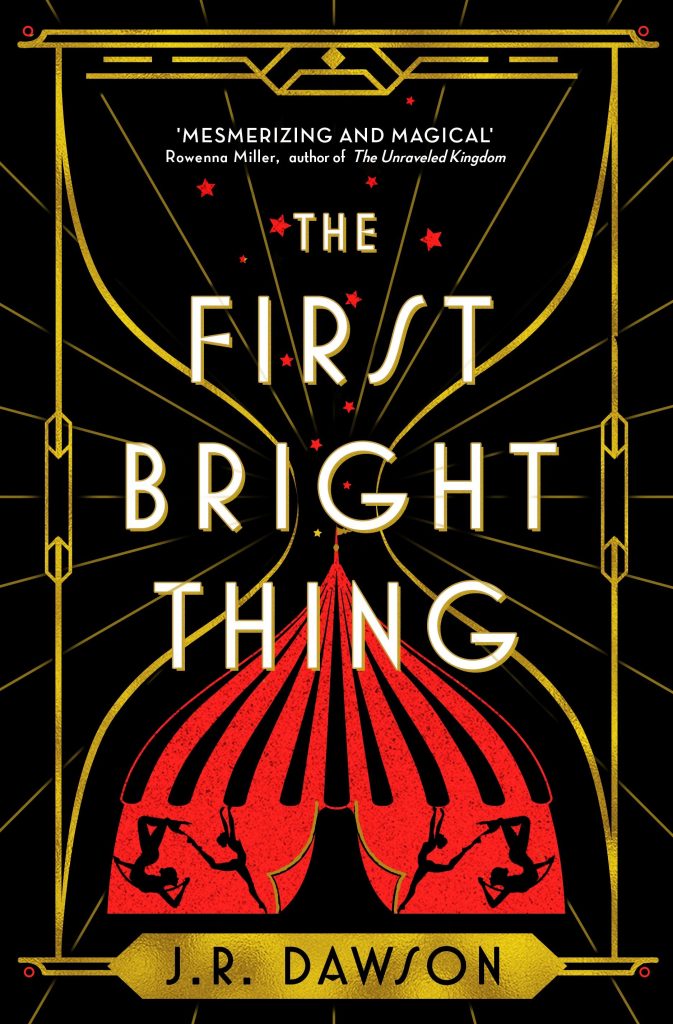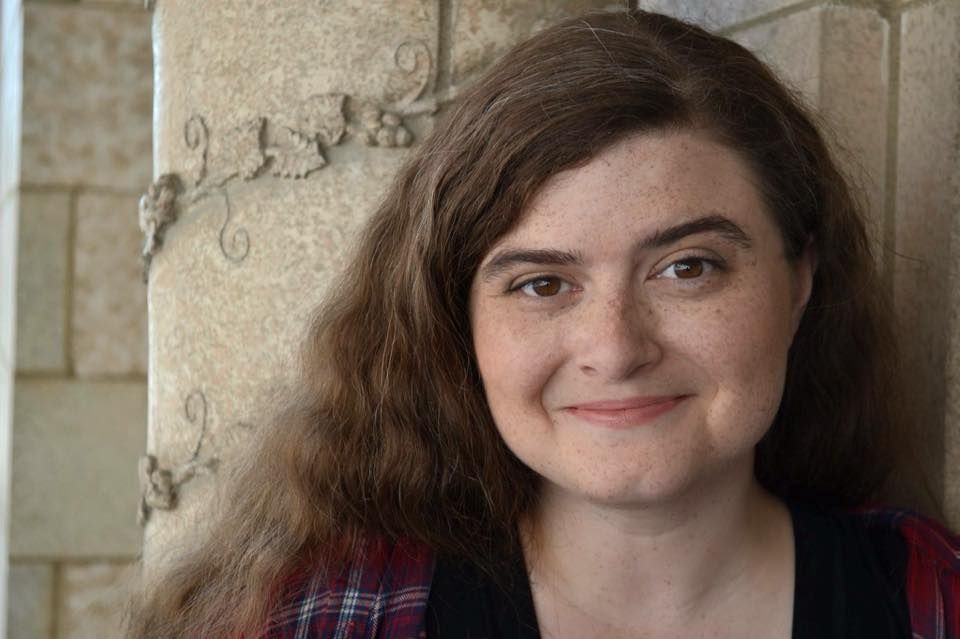Ringmaster – Rin, to those who know her best – can jump to different moments in time as easily as her wife, Odette, soars from bar to bar on the trapeze. With the scars of World War I feeling more distant as the years pass, Rin is focusing on the brighter things in life. Like the circus she’s built and the magical misfits and outcasts – known as Sparks – who’ve made it their home. Every night, Rin and the Fantasticals enchant a Big Top packed full of audiences who need to see the impossible.

But while the present is bright, threats come at Rin from the past and the future. The future holds an impending war that the Sparks can see barrelling toward their Big Top and everyone in it. And Rin’s past creeps closer every day, a malevolent shadow Rin can’t fully escape. It takes the form of another Spark circus, with tents as black as midnight and a ringmaster who rules over his troupe with a dangerous power. Rin’s circus has something he wants, and he won’t stop until it’s his.
If you knew how dark tomorrow would be, what would you do with today?
About The Author

© Caulene Hudson-Pace
R. Dawson (she/they) is a writer and educator. Their upcoming novel, The First Bright Thing (out 22 June) is a spellbinding debut for fans of The Night Circus and The Invisible Life of Addie La Rue. Dawson is Jewish and has worked extensively with the Institute for Holocaust Education writing a play for them to stream for middle school. The First Bright Thing gallops through the world wars (time jumping) and is built upon a certain amount of fact – she calls on her own family experience, American Midwest history, circus history and all her historical WW2 scenes are possible and based on true events. The book is set where she is from, however action does also take place in London, France, Germany and Hiroshima, Japan.
Researching, she travelled through the Midwest tracking the old railroad lines and researching queer history and circus history. The circus portion is as close to actual Midwestern circuses as she could get, including the facts about Barnum and Bailey. She started writing the book around the same time the big circuses were closing for good.
We’re All Storytellers
R. Dawson (she/they)
My family history is like a lot of Americans’: I don’t know.
We come from so many different places. Wales, Mexico, Hungary, Germany. The story of who we were before we got here is steeped in generations of oral storytelling and mysterious questions that never got answered.
I know whoever we were before Ellis Island, is not who we are now. I know that a whole swath of my family was Jewish when they arrived and by the time they got to Chicago, they had hidden it away. I know that my grandfather lived in Mexico City.
I know that my beloved grandmother’s grandmother was sixteen when she showed up in New York, alone. She didn’t know any English. She’d escaped Germany and she never told anyone why.
There are so many things I don’t really know. But what I do know? Is that my own grandma owned land with my grandpa. They had a hundred acres outside of Logan, Iowa, only a few miles from where Rin pitches her circus tents. I know that Grandma would have been living around Dunlap in 1926, all of seven-years-old, when the Windy Van Hooten’s Circus of the Fantasticals would have appeared in her town. I know that she and her four sisters wouldn’t have had the nickel to get into the circus. Her father, Cyrus, wouldn’t have allowed them to go anyway. It was the Dust Bowl, and Grandma was already working the land.
But if Grandma had been there, in the audience, on a night where the Ringmaster came to show her something special … and yes, Rin would come for her … what would she have seen? I know what I would have shown her. I would have reminded her of music, of family, shown her all the dolls and toys she’d have when she got to be an old woman because she couldn’t afford them in the 1920’s. I’d let her know how special she was. Just like she did for me.
A family’s legacy isn’t merely physical locations and a place of origin. Sometimes it’s the grief we carry with us. I was born nine months after my grandfather died. The scars great-grandfather Cyrus left on Grandma’s soul carried through to my own. But my soul also inherited her love, and her love of the land.
Cyrus Smith owned a farm in Iowa in the beginning of the 20th Century. When the Dust Bowl happened, Grandma recalled having to run inside and shut the door fast when the wind kicked up. How hungry they were. How angry they were. When Grandma was fifteen, she was rented out as a farmhand. She ran away, started pumping gasoline at a gas station, and met my grandpa. They worked together to make enough money to buy a hundred acres. And they raised my mother there.
My legacy includes my mom getting up at six in the morning and pulling bugs off the soybeans, and it also includes all the times growing up that she told me I was spoiled because I had running water and no outdoor chores. But she also read her favorite book to me: Watership Down. She told me how she used to go out by the creek on the farm and read and watch the rabbits run past her. It was magic, she said.
To be from a farming family means holding all of this. The toil, the struggle, the uncertainty, the grit, and also the tender appreciation for a rabbit.
I knew since I was a kid that I wanted to write about this prairie land. I wanted to bring it to life with the magic my mother always talked about, and her struggle as she sat in between missing and resenting her childhood. I’d seen others do it; Willa Cather, Ted Kooser. It could be done. And listening to Ben Cooper create his masterpiece The Family Tree, talking about the magic of his own rural family history in Florida, I immediately conjured up the circus’s illusionist: Jo Reed.
It started to melt into reality like watercolors. The sound of a train screeching through the night. The growing crops in the fields and how much stress and care went into them. The big open sky. How even in the ugliest, scariest places, there was always a beautiful sunset.
I took my spouse on multiple road trips through the American heartland, following the train tracks using old side roads, sitting on the porch of a cabin in a Colorado valley and trying to find the exact words that explain what a mountain looks like at dawn. All of these places I’d taken for granted my entire life, the normalcy of my home, the givens of my family … they all lit up with Sparks.
I don’t know if anyone else in my family was ever a writer. I know that we’re all storytellers. And that’s the largest thing I’ve inherited from the women before me. Our stories.

